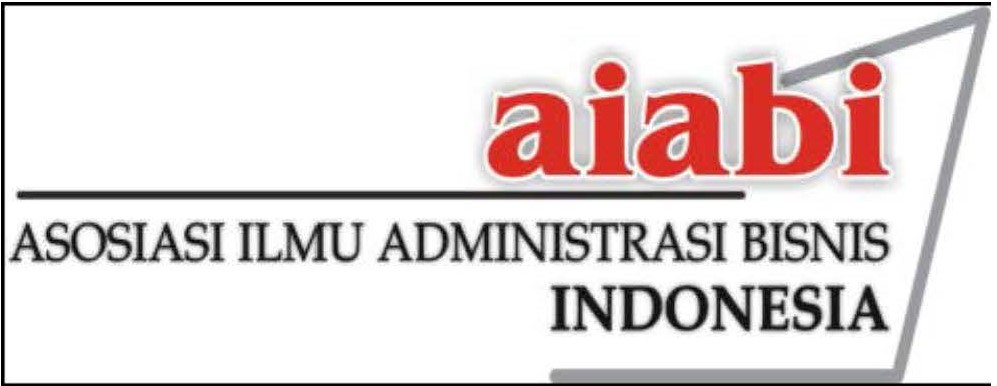PERILAKU KONSUMEN HIJAU PADA REMAJA : STUDI DI DAERAH ALIRAN SUNGAI CITARUM JAWA BARAT INDONESIA
Abstrak
The Citarum Watershed is one of the rivers most affected by environmental pollution. To overcome this problem, people are encouraged to change their lifestyles by choosing environmentally friendly products or services. This study aims to analyze the behavior of environmentally friendly consumption among young people. Primary data collection was carried out by distributing questionnaires to 270 respondents as a sample of high school students in the Citarum Watershed in West Bandung Regency, West Java, Indonesia. Data analysis was conducted using SEM with the variance approach. This study found that young people's perceptions about the importance of green consumer behavior practices and their willingness to buy green products are related to attitudes towards the environment, the seriousness of environmental problems, and knowledge of environmental problems. Environmental Knowledge Problems are the strongest predictor of a desire to buy green products, followed by Consumer Attitude. The lowest predictor is Perceived Seriousness of Environmental Problems.
Sungai Citarum merupakan salah satu sungai yang paling terkena dampak pencemaran lingkungan. Untuk mengatasi masalah ini, masyarakat didorong untuk mengubah gaya hidup dengan memilih produk atau jasa yang ramah lingkungan. Penelitian ini bertujuan untuk menganalisis perilaku konsumsi ramah lingkungan di kalangan anak muda. Pengumpulan data primer dilakukan dengan menyebarkan kuesioner kepada 270 responden sebagai sampel siswa SMA di DAS Citarum Kabupaten Bandung Barat, Jawa Barat, Indonesia. Analisis data dilakukan dengan menggunakan SEM dengan pendekatan varians. Studi ini menemukan bahwa persepsi kaum muda tentang pentingnya praktik perilaku konsumen hijau dan kesediaan mereka untuk membeli produk hijau terkait dengan sikap terhadap lingkungan, keseriusan masalah lingkungan, dan pengetahuan tentang masalah lingkungan. Masalah Pengetahuan Lingkungan adalah prediktor terkuat dari keinginan untuk membeli produk ramah lingkungan, diikuti oleh Sikap Konsumen. Prediktor terendah adalah Persepsi atas Keseriusan Masalah Lingkungan.
Kata Kunci
Teks Lengkap:
PDFReferensi
Aman, A.H.L, Harun A, and Hussein, Z. (2012). The Influence of Environmental Knowledge and Concern on Green Purchase Intention the Role of Attitude as a Mediating Variable. British Journal of Arts and Social Sciences, 7 (2):145 – 167.
Askadilla, W. L., & Krisjanti, M. N. (2017). Understanding indonesian green consumer behavior on cosmetic products: Theory of planned behavior model [Zrozumienie zachowania indonezyjskich klientów dotyczącego ekologicznych produktów kosmetycznych: Teoria planowanego modelu zachowania]. Polish Journal of Management Studies, 15(2), 7–15. https://doi.org/10.17512/pjms.2017.15.2.01
Blackwell, R. M. (2006). Consumer Behavior. Thomson South-Western
Barber, N. A., Bishop, M., & Gruen, T. (2014). Who pays more (or less) for pro-environmental consumer goods? Using the auction method to assess actual willingness-to-pay. Journal of Environmental Psychology, 40, 218–227. https://doi.org/10.1016/j.jenvp.2014.06.010
Boztepe, A. (2012). European Journal of Economic and Political Studies Green Marketing and Its Impact on Consumer Buying Behavior. European Journal of Economic and Political Studies, 5(1), 5–21. Retrieved from https://pdfs.semanticscholar.org/cfa6/1e98d7e1fe74ddedd579949a2b226f985a2f.pdf
Chairy. (2012). Spirituality, Self Transcendence, and Green Purchase Intention in College Students. Procedia - Social and Behavioral Sciences, 57, 243–246. https://doi.org/10.1016/j.sbspro.2012.09.1181
Cheah,Isac., Phau, Ian & Liang, Johan. (2015). Factors influencing consumers’ attitudes and purchase intentions of e-deals. Marketing Intelligence & Planning. 33 (5),763-783
Cho, Y. N., Thyroff, A., Rapert, M. I., Park, S. Y., & Lee, H. J. (2013). To be or not to be green: Exploring individualism and collectivism as antecedents of environmental behavior. Journal of Business Research, 66(8), 1052–1059. https://doi.org/10.1016/j.jbusres.2012.08.020
Cleveland, M., & Laroche, M. (2007). Acculturaton to the global consumer culture: Scale development and research paradigm. Journal of Business Research, 60(3), 249–259. https://doi.org/10.1016/j.jbusres.2006.11.006
Dagher, Grace & Itani, Omar.(2014). Factors influencing green purchasing behaviour: Empirical evidence from the Lebanese consumers. Journal of Consumer Behaviour,13: 188 -195
de Koning, J. I. J. C., Crul, M. R. M., Wever, R., & Brezet, J. C. (2015). Sustainable consumption in Vietnam: An explorative study among the urban middle class. International Journal of Consumer Studies, 39(6), 608–618. https://doi.org/10.1111/ijcs.12235
Do Paço, A., Alves, H., Shiel, C., & Filho, W. L. (2013). Development of a green consumer behaviour model. International Journal of Consumer Studies, 37(4), 414–421. https://doi.org/10.1111/ijcs.12009
Field, A. (2000). Discovering Statistics using SPSS for Windows. London – Thousand Oaks – New Delhi: Sage publications
Geladi, P & Kowalski, B.R. (1986). Partial-least squares regression : a tutorial. Journal Analytica Chimica Acta, Vol 185, 1-17. https://doi.org/10.1016/0003-2670(86)80028-9
Gilg, A., Barr, S., & Ford, N. (2005). Green consumption or sustainable lifestyles? Identifying the sustainable consumer. Futures, 37(6), 481–504. https://doi.org/10.1016/j.futures.2004.10.016
Han, H., & Kim, Y. (2010). An investigation of green hotel customers’ decision formation: Developing an extended model of the theory of planned behavior. International Journal of Hospitality Management, 29(4), 659–668. https://doi.org/10.1016/j.ijhm.2010.01.001
Hofstede, G. (2001). Culture's consequences: Comparing values, behaviors, institutions and organizations across nations. London: Sage Publications.
Huang, H. C., Lin, T. H., Lai, M. C., & Lin, T. L. (2014). Environmental consciousness and green customer behavior: An examination of motivation crowding effect. International Journal of Hospitality Management, 40, 139–149. https://doi.org/10.1016/j.ijhm.2014.04.006
Jaiswal, D., & Kant, R. (2018). Green purchasing behaviour: A conceptual framework and empirical investigation of Indian consumers. Journal of Retailing and Consumer Services, 41, 60–69. https://doi.org/10.1016/j.jretconser.2017.11.008
Junaedi, M. F. S. (2007). The Roles Of Consumer’s Knowledge And Emotion In Ecological Issues: An Empirical Study on Green Consumer Behavior. Gadjah Mada International Journal of Business, 9(1), 81. https://doi.org/10.22146/gamaijb.5606
Kanchanapibul, M., Lacka, E., Wang, X., & Chan, H. K. (2014). An empirical investigation of green purchase behaviour among the young generation. Journal of Cleaner Production, 66, 528–536. https://doi.org/10.1016/j.jclepro.2013.10.062
Kim, Y.J., Njite, D., Hancer, M., 2013. Anticipated emotion in consumers' intentions to select eco-friendly restaurants: augmenting the theory of planned behavior. Int. J. Hosp. Manag. 34, 255–262.
Lai, C. K. M., & Cheng, E. W. L. (2016). Green purchase behavior of undergraduate students in Hong Kong. Social Science Journal, 53(1), 67–76. https ://doi.org/10.1016/ j.soscij.2015.11.003
Lee, You Kyung. (2017). A Comparative Study of Green Purchase Intention between Korean and Chinese Consumers: The Moderating Role of Collectivism. Sustainibility Sustainability 2017, 9(10), 1930; https://doi.org/10.3390/su9101930
Liobikiene, G., Mandravickaite, J., & Bernatoniene, J. (2016). Theory of planned behavior approach to understand the green purchasing behavior in the EU: A cross-cultural study. Ecological Economics, 125, 38–46. https://doi.org/10.1016/j.ecolecon.2016.02.008
Millan, E., De Pelsmacker, P., & Wright, L. T. (2013). Clothing consumption in two recent EU Member States: A cross-cultural study. Journal of Business Research, 66(8), 975–982. https://doi.org/10.1016/j.jbusres.2011.12.020
Newton, J. D., Tsarenko, Y., Ferraro, C., & Sands, S. (2015). Environmental concern and environmental purchase intentions: The mediating role of learning strategy. Journal of Business Research, 68(9), 1974–1981. https://doi.org/10.1016/j.jbusres.2015.01.007
Nguyen, T. N., Phan, T. T. H., Cao, T. K., & Nguyen, H. V. (2017). Green purchase behavior: mitigating barriers in developing countries. Strategic Direction, 33(8), 4–6. https://doi.org/10.1108/SD-04-2017-0064
Ottman, J. A., Stafford, E. R., & Hartman, C. L. (2006). Avoiding green marketing myopia: Ways to improve consumer appeal for environ- mentally preferable products. Environment, 48(5), 22–36.
Pemer, F., Sieweke, J., Werr, A., Birkner, S., & Mohe, M. (2014). The cultural embeddedness of professional service purchasing-A comparative study of German and Swedish companies. Journal of Purchasing and Supply Management, 20(4), 273–285. https://doi.org/10.1016/j.pursup.2014.05.002
Prakash, G., & Pathak, P. (2017). Intention to buy eco-friendly packaged products among young consumers of India: A study on developing nation. Journal of Cleaner Production, 141, 385–393. https://doi.org/10.1016/j.jclepro.2016.09.116
Ramayah, T., Lee, J. W. C., & Mohamad, O. (2010). Green product purchase intention: Some insights from a developing country. Resources, Conservation and Recycling, 54(12), 1419–1427. https://doi.org/10.1016/j.resconrec.2010.06.007
Samarasinghe, G. D., & Samarasinghe, D. S. R. (2013). Green decisions: Consumers’ environmental beliefs and green purchasing behaviour in Sri Lankan context. International Journal of Innovation and Sustainable Development, 7(2), 172–184. https://doi.org/10.1504/IJISD.2013.053336
Tan, B.-C. (2011). The Roles of Knowledge, Threat, and PCE on Green Purchase Behaviour. International Journal of Business and Management, 6(12), 14–27. https://doi.org/10.5539/ijbm.v6n12p14
Yadav, R. and Pathak, G.S. (2017),“Determinants of consumers green purchase behavior in a developing nation: applying and extending the theory of planned behavior”,EcologicalEconomics, Vol. 134 No. 1, pp. 114-122.
Zhao, H. H., Gao, Q., Wu, Y. P., Wang, Y., & Zhu, X. D. (2014). What affects green consumer behavior in China? A case study from Qingdao. Journal of Cleaner Production, 63, 143–151. https://doi.org/10.1016/j.jclepro.2013.05.021
DOI: https://doi.org/10.24198/adbispreneur.v6i3.35290
Refbacks
- Saat ini tidak ada refbacks.









